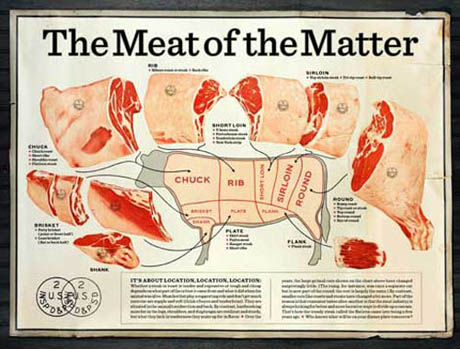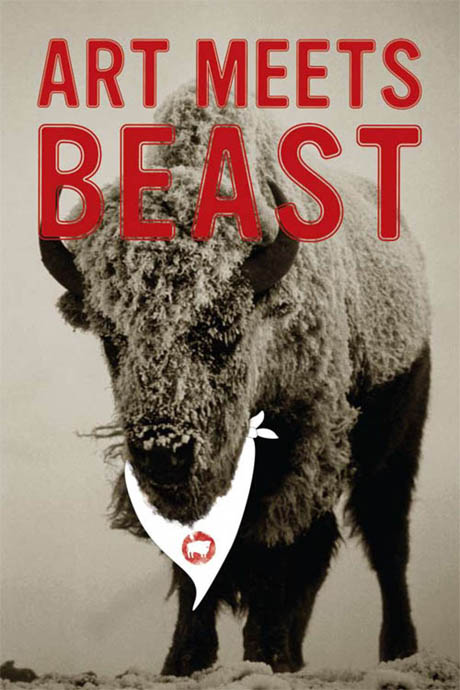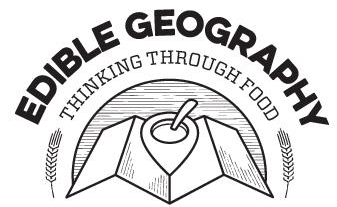
Just a quick note to say that Foodprint Denver, the third event in the Foodprint Project series that Sarah Rich and I co-curate, takes place today! We’ll be at the Denver Museum of Contemporary Art from 4:00 to 6:00 p.m., conducting a back-to-back series of live, quickfire Q&As about the relationship between meat and design at a variety of different scales.
Colorado State University meat scientist Keith Belk will join us first, to discuss the biological architecture of cattle. His research includes the development of the Carcass Optimizer™, an online tool that draws on detailed cow muscle maps to “help packers and processors breakdown their carcasses into the most profitable combination of cuts,” as well as the invention of the Smart Machine Vision Beef Cam, which uses the same technology Levi Strauss uses to measure the color of stonewashed jeans, in order to accurately gauge the tenderness of lean meat.
He’ll be followed by Pete Marczyk, a local chef, and the founder and owner of Marczyck Fine Foods, the gourmet grocery store whose in-house butcher, Jimmy Cross, spent yesterday breaking down the bison that forms the centerpiece of the museum’s post-event Beast Roast. We’ll be asking Pete about the differences between bison and beef butchery, as well as regional variations in meat cuts and his prediction for the next bacon-style trend.

IMAGE: Foodprint Denver is part of the Denver MCA’s three-day Art Meets Beast program.
Unfortunately Temple Grandin, who was scheduled to join us next to talk about her work to design livestock facilities that improve cattle’s emotional health, has been forced to cancel. Instead, we’ll move straight on to a discussion of the spaces in which we consume meat with The Fort restaurant’s Holly Arnold Kinney.
Moving onto a more abstract spatial level, we’ll ask UC Boulder professor Elizabeth Dunn to introduce us to the global geography of the cattle industry, as well to the “zones of wildness” produced by federal food safety regulation.
And, last but not least, rancher, author, and former Agriculture Commissioner for Colorado Peter Decker will speak to the relationship between ranching and the landscape, from Western appropriation of the native Ute prairie to contemporary ecological concerns.
The afternoon promises to be a brief but thoroughly thought-provoking introduction to the way meat both shapes and has been shaped by the city and its agricultural hinterland. Tickets are $15 (or $10 for MCA members), and for those of you who can’t make it, the MCA will be recording the event, so we’ll post the video to the Foodprint Project archive as soon as possible afterward.

IMAGE: The Foodprint Denver logo, designed, as always, by the fabulous Nikki Hiatt.
Many thanks to our fantastic line-up of speakers, as well as to the Denver Museum of Contemporary Art and its inspired curatorial team, Adam Lerner and Sarah Kate Baie, for inviting Sarah and I to bring Foodprint Project to Denver. I can’t wait — hope to see you there!

